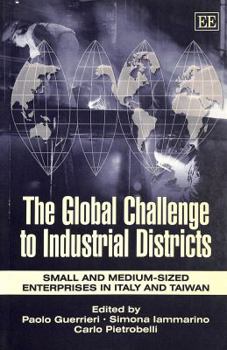The Global Challenge to Industrial Districts: Small and Medium-sized Enterprises in Italy and Taiwan
The current trend towards globalization is posing a substantial challenge to SME clusters to restructure and reach out to distant markets and knowledge sources, while at the same time exploiting the advantages of local factors and agglomeration. This book represents a first attempt to analyze these issues in detail, employing novel empirical evidence. Taiwan, two countries in which these businesses characterize the national industrial structure. They find that in the current climate of globalization, there is no best practice model for organizing an industrial cluster since a diversity of successful institutional arrangements is possible. They demonstrate that over time SME clusters can evolve and that globalization can reshape their upgrading options by providing a variety of international knowledge linkages. Thus, the authors conclude that the development of local and global networks and new interactive modes of knowledge creation, which have co-evolved as a result of globalization, have provided the necessary conditions for competitive survival. analytical tools to evaluate their survey data and present an original comparison between the experiences of two countries that are facing the challenges of globalization, often with differing strategies. This book should be of great interest to industrial and international economists, policymakers and corporate and SME managers.
Format:Paperback
Language:English
ISBN:1843764873
ISBN13:9781843764878
Release Date:November 2003
Publisher:Edward Elgar Publishing
Length:224 Pages
Weight:0.75 lbs.
Dimensions:9.3" x 0.8" x 6.3"
Related Subjects
Business Business & Investing Economics Political Science Politics & Social SciencesCustomer Reviews
0 rating





